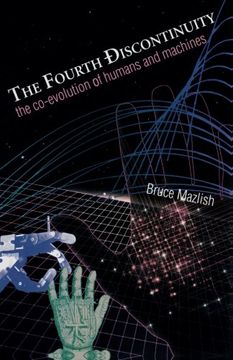Reseña del libro "The Fourth Discontinuity: The Co-Evolution of Humans and Machines (en Inglés)"
From Mary Shelley's Frankenstein to current films like The Terminator about menacing androids, writers have expressed concern about computers and biogenetic creations taking over or altering human life. In this engrossing and lively book, Bruce Mazlish discusses the complex relationship between humans and machines, pondering the implications of humans becoming more mechanical (our bodies increasingly hooked up to artificial parts), and of computer robots being programmed to think. Mazlish argues that just as Copernicus, Darwin, and Freud overturned our illusions of separation from and domination over the cosmos, the animal world, and the unconscious, it is now necessary to relinquish a fourth fallacy or discontinuity--that humans are discontinuous and distinct from the machines they make. Drawing on history and legend, science and science fiction, Mazlish examines how events and individuals have shaped the ways that humans relate to machines. He describes early Greek and Chinese automatons (forerunners of the robot); he discusses the seventeenth-century debate over what was called the "animal machine"; he shows how the Industrial Revolution created a truly mechanical civilization; he looks at what thinkers such as Descartes, Linnaeus, Darwin, Freud, Pavlov, Charles Babbage, T.H. Huxley, and Samuel Butler contributed to our understanding of human nature as contrasted with animal or machine; and he surveys the modern revolutions in biogenetics and computer and brain sciences that have brought humans and machines closer together than ever before. Mazlish argues provocatively that human nature is best understood in the context of the machines and tools we have created and that humans and our creations-computer robots-will eventually evolve into two new species coexisting in a symbiotic relationship.

